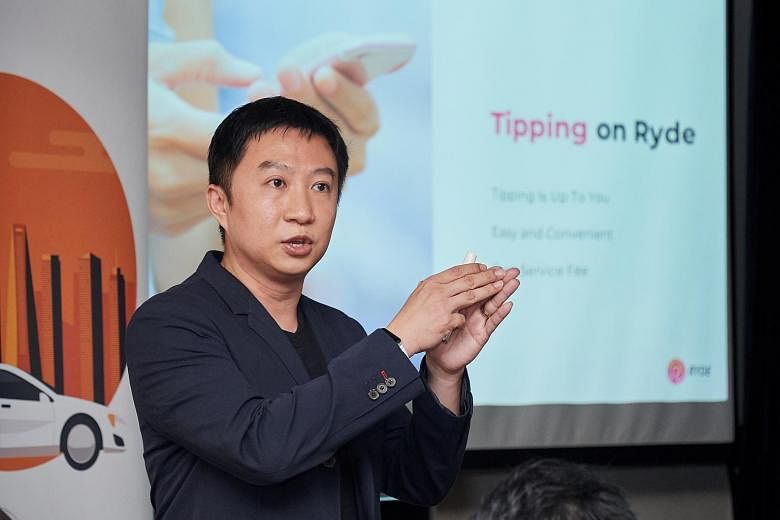Ride-hailing firms have agreed with a watchdog's finding that Grab's acquisition of Uber's South-east Asian business infringed competition laws.
Mr Terence Zou, chief executive officer and founder of Ryde, a local point-to-point transport application, said the decision by the Competition and Consumer Commission of Singapore (CCCS) was a step in the right direction.
He said the merger between Grab and Uber, which was unfair, had already been done, and was "practically speaking" not possible to be undone.
The CCCS, in a statement on Thursday, proposed imposing remedial measures, including fines, on Grab to revive dwindling competition in the point-to-point transport services industry here.
Mr Zou said: "The measures fell short of defining a fee. The fine... needs to be substantial in order to 'reverse' the unfairness and be meaningful."
He said that, of all the measures, the one disallowing exclusive contracts between Grab and drivers or taxi companies is the most important one to implement, as it will prevent the suffocation of other apps.
The founder and chief executive officer of MVL, another point-to-point transport application slated to launch at the end of the month, Mr Kay Woo, said: "Preventing the use of exclusive agreements will allow competitors to actually take some market share, and participate in the competition. With exclusive contracts, it is hard to gain the necessary critical mass to even participate."
Local taxi company Trans-Cab Services also agreed that the removal of exclusive contracts will benefit its drivers and the market in general.
In justifying the measure, the CCCS said in a statement yesterday: "The removal of exclusivity will allow potential competitors access to an adequate number of cars and drivers in order to compete effectively."
The organisation also justified the remaining measures. It said the proposed remedy on maintaining Grab's pre-merger pricing algorithm is to protect riders from higher base fares and surge factors.
CCCS also explained the decision for Uber to sell Lion City Rentals wholly or partly to a potential competitor, and not be sold to Grab without CCCS' approval. It said allowing rivals access to Lion City's cars and drivers was in response to feedback from transport services. It also kept concerns of Uber and Grab in mind. Uber does not have to sell Lion City or its assets unless it gets a reasonable offer while Grab may buy it or its assets if it obtains CCCS' approval.


